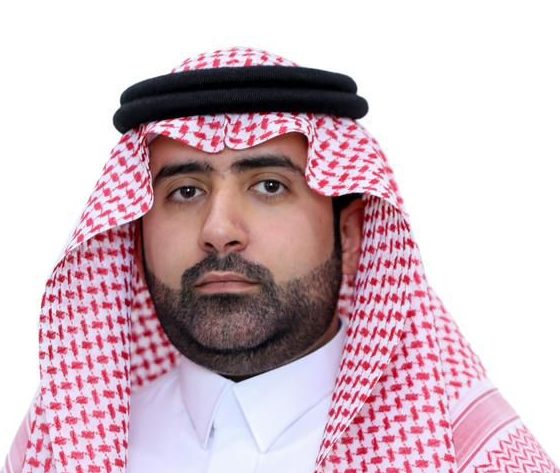Publisher: Maaal International Media Company
License: 465734
Saudi Football Victories: How Al-Ahli’s Asian Elite Victory Fuels PIF Global Sports Investment Strategy
With Al-Ahli Saudi Club’s historic victory in the Asian Elite Championship, Saudi Arabia has not only secured continental football glory but also taken a bold step toward realizing its broader strategic vision: using sport as a catalyst for economic diversification, international branding, and soft power projection.
Backed by the Saudi Public Investment Fund (PIF), Al-Ahli’s ascent from a dominant domestic club to a continental champion reflects the Kingdom’s commitment to sports as a pillar of Vision 2030. This vision aims to leverage football’s popularity to attract tourism, amplify Saudi Arabia’s international presence, and foster long-term economic development.
The PIF Strategy: Sports as an Engine for Growth
اقرأ المزيد
The Saudi PIF, managing assets exceeding $900 billion, has aggressively expanded into sports investments. By acquiring top Saudi clubs—Al-Ahli, Al-Hilal, Al-Ittihad, and Al-Nassr—the fund seeks to build globally competitive teams and boost the international appeal of Saudi sports. These investments go beyond winning titles; they aim to establish Saudi Arabia as a global sports powerhouse and entertainment destination.
According to Deloitte, the Saudi Pro League’s sponsorship market was worth over $350 million in 2023, and is expected to double by 2026. This is fueled by rising viewership, improved infrastructure, managerial structures, transparency, governance, and the recruitment of international talent.
Global Reach Through Star Power
A key pillar of Saudi Arabia’s sports diplomacy is the recruitment of internationally recognized talent. Al-Ahli’s squad exemplifies this vision, now featuring 12 elite international players from across the globe—each contributing on the field while amplifying the club’s brand and global appeal.
World-class stars now wearing the Al-Ahli jersey include:
- Riyad Mahrez (Algeria) – Over 15 million social media followers; a key figure in both North African and European football circles
- Franck Kessié (Ivory Coast)
- Roberto Firmino (Brazil)
- Roger Ibañez (Brazil/Italy)
- Édouard Mendy (Senegal)
- Merih Demiral (Turkey)
- Gabri Veiga (Spain)
These players are more than athletes—they are global brand ambassadors. Their presence at Roshan League brings international fanbases, media attention, and sponsorship potential. Mahrez connects with markets in North Africa and Europe, while Mendy extends reach across Francophone Africa.
By strategically leveraging their popularity through multilingual content, cross-border merchandising, and global sponsorship deals, Al-Ahli is positioning itself as a transnational football brand. This star power enables Saudi football to expand into new and diverse markets across Africa, Europe, and Asia, supporting broader national goals of sports diplomacy, economic diversification, and international influence.
Sports and Tourism: Positioning Jeddah as a “City of Champions”
The integration of sports and tourism is central to Saudi Arabia’s diversification plan. The Kingdom attracted 27 million international tourists in 2023, with over 2.5 million attending sports-related events.
Al-Ahli’s victory presents a unique opportunity to brand Jeddah as a “City of Champions.” The city can capitalize on this success by introducing stadium tours, sport museums, fan zones, themed experiences, and international youth tournaments—transforming local pride into a global tourism attraction. This supports Saudi Arabia’s alignment with global sustainability and development goals such as SDG 8 (economic growth) and SDG 11 (sustainable cities).
Driving Innovation and Entrepreneurial Ecosystems
Beyond image and tourism, sporting success drives innovation. Al-Ahli’s expanding fanbase creates opportunities for Saudi entrepreneurs to develop apps, data platforms, and immersive digital experiences. Partnerships with Saudi universities and incubators could yield sport-tech startups and innovations in AI, AR, and fan analytics.
Moreover, aligning sponsorship and CSR initiatives with social values such as youth empowerment, gender equality, and sustainability strengthens the impact of sports investment. Through sport, Saudi Arabia can accelerate key global goals like SDG 9 (innovation and infrastructure), SDG 12 (sustainable production and consumption), as well as SDG 8 (economic growth) and SDG 11 (sustainable cities)—ensuring that growth is both inclusive and future-oriented.
The Newcastle United Case: A Blueprint for Ripple Effects
The PIF’s ownership of Newcastle United offers a valuable case study. Since its acquisition, Newcastle has returned to the UEFA Champions League, attracting global attention. According to VisitBritain, international tourism to Newcastle rose by 16% in 2023, contributing over £200 million to the local economy. Football-driven city branding proved to be an economic accelerator—one that Saudi cities can replicate.
A Sustainable Path Forward
Al-Ahli’s triumph must now serve as a launchpad for long-term progress. A sustainable strategy should include:
- Expanding retail and licensing in global markets
- Enhancing digital platforms for fan interaction and monetization
- Engaging with communities across Asia, Europe and Africa
- Deepening grassroots development and football academies
- Attracting global sponsors aligned with Saudi values
Saudi Arabia’s sports renaissance is not just a spectacle—it’s a strategic transformation. With victories like Al-Ahli’s, the Kingdom is shaping a new identity at the crossroads of performance, diplomacy, and economic opportunity





